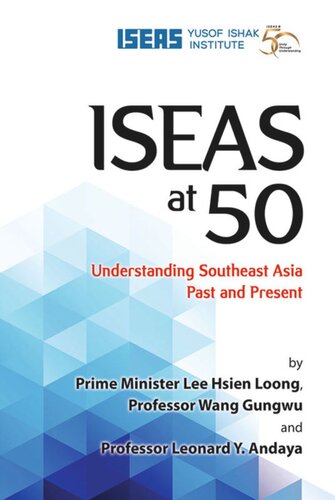

Most ebook files are in PDF format, so you can easily read them using various software such as Foxit Reader or directly on the Google Chrome browser.
Some ebook files are released by publishers in other formats such as .awz, .mobi, .epub, .fb2, etc. You may need to install specific software to read these formats on mobile/PC, such as Calibre.
Please read the tutorial at this link: https://ebookbell.com/faq
We offer FREE conversion to the popular formats you request; however, this may take some time. Therefore, right after payment, please email us, and we will try to provide the service as quickly as possible.
For some exceptional file formats or broken links (if any), please refrain from opening any disputes. Instead, email us first, and we will try to assist within a maximum of 6 hours.
EbookBell Team

4.7
36 reviews2018 marks the 50th anniversary of the ISEAS – Yusof Ishak Institute. The Institute of Southeast Asian Studies, as it was then called, was established in 1968 by then Deputy Prime Minister Dr Goh Keng Swee in order to enable the newly independent city-state better understand the region and its complexities. Since its establishment, ISEAS has dedicated itself to researching the political, economic and socio-cultural dynamics and trends in Southeast Asia for policymakers, scholars, and other relevant stakeholders. On 12 August 2015, the Institute was officially renamed ISEAS – Yusof Ishak Institute, in honour of Singapore’s first President. This book presents three public lectures given to commemorate the Institute’s Golden Anniversary. Professor Leonard Y. Andaya delivered the first lecture entitled “Developments in the Scholarship of Southeast Asian Studies” on 21 February 2018. The second public lecture was delivered by Prime Minister Lee Hsien Loong on 13 March 2018. Professor Wang Gungwu delivered the final public lecture entitled “Before Southeast Asia: Passages and Terrains” on 3 October 2018. Collectively, these three public lectures exhort ISEAS to continuously reflect on its research agenda, the region, as well as the contemporary landscape and challenges it has to operate in.